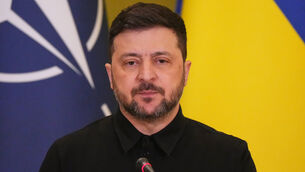EU delegation grills US on Guantanamo
A delegation from the European Union questioned the Obama administration about Guantanamo Bay as member states consider whether to accept a US request to take some of the detainees when the controversial jail is shut.
Jacques Barrot, the EU’s justice and home affairs commissioner, and Czech interior minister Ivan Langer presented US attorney general Eric Holder a detailed list of questions, including security risks, the inmates and their detentions.














